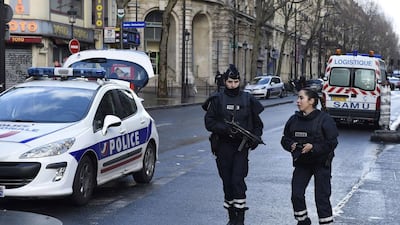A year ago, we had high hopes for the exercise of free speech. After the gruesome attacks at the Charlie Hebdo offices in Paris, the world came together to stand in condemnation.
But far from being a turning point to create understanding of the interplay between power, privilege and freedom of speech, the event was part of a year in which we have seen privilege entrenching its own right to freedom of expression while continuing to deny it to those who do not have privilege.
Offensive speech is not heroic if exercised from a position of privilege. And this is particularly so if the demands are that those who are the objects of the offence must accept it meekly. That’s the ultimate mockery: to assert the right to offend and then determine what the “correct” response from the offended should be. That’s just an added form of oppression.
Muslims are told that offence must be allowed to be given to them and to Islam. And they are further told they must not be offended. They must simply accept the entrenchment of their muted position, as minorities in countries where they all too often have less power and less representation. Or as a global population that has less power and influence on the global stage. But we see this power play repeated again and again with those in power demanding not just the right to express mockery, satire and even hatred, but the insistence that they must do so.
After Donald Trump’s horrific comments – including calling Mexicans rapists and saying Muslims should be banned from the US – his hate speech has not had him automatically barred entry to the UK. Instead, those of us in Britain have been told that we should invite him in, hear him out and challenge his ideas as the best way to dismantle their absurdity. It is his white, male privilege that even opens this consideration. However, black Nation of Islam leader Louis Farrakhan, who also holds controversial views, remains banned.
The events at Charlie Hebdo were part of a year unleashing open expression of hatred on Muslims. The action of deliberately giving offence has not even remotely shut down terrorism. Instead, it plays into the hands of those wreaking terror, providing the fodder from which they create their evil world view. The cover of Charlie Hebdo's current edition shows that violence continues to run riot – an admission that their approach has achieved nothing.
Power balance is crucial in asserting the right to offend and mock, but the free speech that has been advocated is blind to the fact that the privilege is being used to insult those who have less power than them. This entrenches the power system and unleashes more hate speech and actions.
Even if we accept the Charlie Hebdo explanation that it's satire rather than hatred, this has been lost on those carrying out hate actions. It's an echo chamber for hatred – and the echoes are felt every day on the ground by ordinary people facing a tsunami of violence, and discriminatory words and actions.
One year on from the attack on Charlie Hebdo, instead of a golden age of free speech being heralded in, we have instead unleashed hatred both conceptual and physical against minorities and those who do not hold power. Those who hold privilege need to start with themselves in ensuring the idea of free speech is more than just cheap talk.
Shelina Zahra Janmohamed is the author of Love in a Headscarf and blogs at www. spirit21.co.uk

